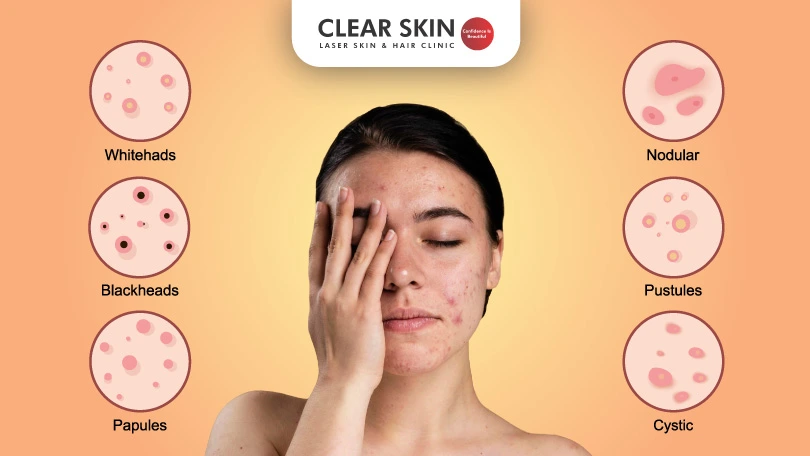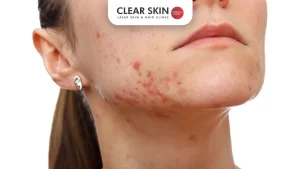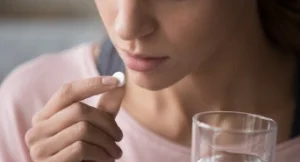Various Types of Acne: Causes, Symptoms, and Treatments
Reviewed By: ![]() Dr. Dhanraj Chavan
Dr. Dhanraj Chavan
Updated on: 20th January, 2025

Today we take on the task of understanding and managing one of the most common skin concerns faced by millions worldwide – Acne! Whether you are a teenager experiencing the rollercoaster of hormonal changes or an adult still trying to understand your breakouts, looking for answers to your acne-related woes – you have landed in the right place.
Table Of Content
- What is Acne?
- Different Types of Acne Based on the Site
- Special Types of Acne
- Grades of Acne
- Acne Treatment
- Conclusion
What is Acne?
Acne is a common skin condition with pimples or blemishes, mostly on the face, and it can take a toll on your confidence. If you’ve dealt with acne, you know how unpredictable it can be—some days your cream works, other days it doesn’t. That’s because acne has many causes, like hormones, genetics, diet, lifestyle, and even cosmetics.
Let’s take a closer look at the different Types of Acne and how dermatologists treat it.
Non-Inflammatory Acne
Non-inflammatory acne is one of the most common types of acne that doesn’t involve inflammation or redness. It is the first step in the acne formation process. The mildest form of acne. Here the hair follicles and the skin pores are all clogged up because of oil, dead skin cells and dirt, causing the oil glands to swell up and come up on the skin as bumps –
-
Comedones
Comedones are the first to form when you get acne. It has a bumpy structure and makes the skin uneven. Comedones can thus be felt more than seen. You can feel them like small beads or bumps underneath your skin. Comedonal acne is broadly known as whiteheads and blackheads, also called open comedones and closed comedones.
-
Open Comedones
The blackheads are known as open comedones. In this type of acne, skin pores open, and the oil block reacts with the air becoming black. Some people think it’s dirt, but it’s open comedones. Having blackheads is a sign that your skin is producing extra oil and is acne-prone.
-
Closed Comedones
The whiteheads are known as closed comedones. Here, the skin pore openings are closed, and the oil block cannot come out, raising a small bump. Similarly, like blackheads, having a lot of whiteheads is a sign of impending breakouts.
Inflammatory Acne
When the bacteria invade a blocked oil gland and start growing, our immune system tries to fight the bacteria. This causes inflammation – which is seen as redness, pus points and painful deep bumps. Inflammation tells us that the acne process has gone deep and become severe and usually requires proper acne treatment Pune.
Let us look into the different types of acne.
-
Papules and Pustules
Acne papules are a form of lesion on the skin. Papules are caused by a buildup of oil and germs inside the pore that is limited by dead skin cells. It closes the pores and enlarges and infects the hair follicle. It then transforms into a massive red lump filled with pus and a fluid mixture containing inflammatory cells.
Pustules are when the pus inside the hair follicle comes up and is seen as a plus point. Papules and Pustules are the most common type of acne observed, and they are also known as zits or pimples.
-
Nodules
Nodules form when the above-mentioned oil mixture, bacteria and cells go deeper and spread beyond the oil gland and hair follicle. Just like comedones, nodules are felt more than seen. On touching, these pimples think like a small hard bead or seed inside the skin. Many times they are very painful to touch.
-
Cysts
Cysts are the most severe type of pimples. They form when deep nodules grow bigger and finally burst inside the skin, creating a small area full of oil, cells and pus. It is as if a small bubble is formed inside the skin.
Nodules and cysts are severe forms of acne and are frequently associated with many redness, acne spots and scars.
Different Types of Acne Based on the Site
Moving on, we all know that we can get acne not only on the face but on other parts of the body as well. Accordingly, these pimples can be classified based on their location:
Face Acne or Acne Vulgaris
Acne Vulgaris – commonly seen pimples.
The face is the most common site to get pimples; thus, facial acne, also known as acne vulgaris, is the most common acne seen.
Starting at puberty, troubling throughout teenage and finally settling after the 30s is the usual journey that faces acne goes through.
Back Acne or Truncal Acne
When acne vulgaris becomes severe and spreads to the chest, back, or shoulders, the condition is known as truncal acne or back acne. Acne on the trunk can often result in scarring and pigmentary issues. As a result, it is vital to detect the condition early to begin treatment on time.
Forehead Acne
When the pores on your forehead become clogged with dead skin cells, oils, and germs, they start forming pimples on the forehead. Using a lot of oil in the hair, oily hair care products, dandruff, using a bandana or forehead bands etc., are a few of the common reasons for acne.
Scalp Acne
Acne and outbreaks on the scalp are known as scalp acne. The main reason for acne can be the excess of oil. Also, acne on the scalp is less prevalent than in other areas, yet it can be troublesome. If you are suffering from scalp acne, the doctor’s prescribed shampoo or scalp treatment can help you.
Acneiform Eruptions
Acneiform eruptions are a collection of skin conditions marked by papules and pustules that look like acne but are not acne per-se. Acneiform eruptions are caused due to some external factor or application like medicated creams, oils, grease, tight clothes etc, that block the skin pores, causing acne. They can occur almost anywhere on the body, including the face, arms, buttocks, thighs etc.
Most of the time, acneiform eruptions are treated by simply removing the cause of acne and letting the skin breathe.
पिंपल के प्रकार, कारण और उपाय (Acne: Types,Causes & Treatments) | ClearSkin, Pune | (In HINDI)
Special Types of Acne
These special acne variants are commonly seen nowadays and can be quite troublesome if not treated properly.
Acne Cosmetica
Acne caused by cosmetics, known as acne cosmetica, is a stubborn yet mild form of acne. It often shows up as tiny bumps on the face, neck, hairline, or scalp—places we tend to apply the most products. This type of acne is usually triggered by frequent changes in cosmetics or using too many products at once, which can irritate the skin and lead to breakouts.
If you’ve been struggling with bumps or breakouts from your favorite beauty products, it might be time to rethink your routine. Start by simplifying your skincare and using gentle, non-comedogenic cosmetics. Need help finding the right products?
Let’s take care of your skin together— Contact us for expert advice today!
Maskne – Mask Acne
Acne caused by wearing a face mask is known as Maskne. We have seen a rise in this type of acne with the pandemic of COVID-19. In combination with friction, the humid and obstructive environment inside the mask can retain moisture from breathing, talking, or sweating, leading to the maskne.
Although maskne is inconvenient, it is critical to continue using facial coverings throughout COVID-19. One can avoid maskne by practising good mask-wearing behaviours such as not re-wearing the same mask for too long and using clean cotton masks where possible.
Oil Acne
An excess of oil on the skin or exposure to heavy oils causes acne, which is known as oil acne. Using facial and body oil or hair oil seeping on the face are a few of the common reasons for acne. Methods like oil cleansing and double-cleansing can help get rid of oil acne.
Drug-induced Acne
Drug-induced acne is a skin disorder with symptoms similar but not identical to common acne. Various medications can cause drug-induced acne Drugs like corticosteroids, lithium, vitamin B12, thyroid hormones, halogen compounds, antibiotics, and anti-tuberculosis medicines can cause acne as a side effect. Contact your doctor or dermatologist for acne treatment in Pune if you experience a breakout after taking any of these medications. It is not recommended to stop these medicines on your own.
Grades of Acne
Any acne treatment is considered after noting the grade of acne. Acne has four different grades based on its appearance and severity. Though the severity of the disease differs from person to person, knowing the grade will make determining the best acne therapy easy. The severity of acne determines the treatment. The severity of acne in the same person might vary depending on hormonal changes, stress levels, and other factors. As a result, doctors need to modify acne treatments to produce the best outcomes. Here is the acne ranking based on severity by dermatologists.
Grade 1 Only Comedones
The mildest type of acne is seen at the initial stages. Early treatment and good skin care at this stage prevent severe breakouts.
Grade 2 Comedones and Few Papules
Usually, inflammation begins at grade 2. Proper treatment at this stage prevents the formation of spots and scars.
Grade 3 Deep Papules and Nodules
This is the stage where severe acne starts. Grade 3 requires good guidance and treatment from a dermatologist to prevent skin damage.
Grade 4 Severe Nodules, Cysts, and Scarring Acne
It is the most severe form of acne and requires aggressive acne treatment in Pune from a qualified dermatologist.
Acne Treatment
Acne comes in a variety of forms, grades, and treatments. The severity of the condition determines acne treatment in Pune. Some people can treat themselves with home cures, while others need to see their dermatologists. Let’s have a look at the different treatments for various types of acne.
Skincare
The first step in treating acne is to take care of your skin. Acne can be treated by following a skincare program that includes cleansing, toning, moisturising and exfoliation.
Furthermore, a good skincare routine can assist acne-prone skin maintenance and aid treatment. Mild comedones can be treated with skincare. Your doctor can help you choose your skincare products according to your skin type and acne.
OTC Products
OTC or over-the-counter products are creams, lotions, cleansers etc., that can be bought without any prescription. They contain lower concentrations of active medicines and can be used as a step up from routine skincare to reduce your acne.
Benzoyl peroxide, Salicylic acid, Alpha hydroxy acids, and Sulphur are some common chemicals available in OTC acne products.
Though a good option for mild to moderate acne, they can have limited results after a certain time.
Topical Medicines
Topical medicines are the medicines that your doctor gives you to apply to the skin directly. These medicines act locally on acne and skin – fighting bacteria and inflammation.
Antibiotics like clindamycin, Retinoids ( tretinoin), Benzoyl peroxide, and Salicylic acid Alpha Glycolic Acids (Glycolic Acid) are a few of the most common topical medicines used in the treatment of acne.
These are medical-grade products and need to be prescribed by a certified dermatologist.
Oral Medicines
Oral medicines are required in severe forms of acne when topical medicines are not enough. These medicines go inside of the body and act on different internal factors causing acne like hormones, genetic signals, inflammatory reactions etc.
Antibiotics (doxycycline, minocycline), Isotretinoin, Oral contraceptive pills, Spironolactone etc., are the common oral medicines prescribed for acne treatment in Pune.
The dose of these medicines needs to be adjusted from person to person to avoid side effects. As a result, it is important to understand that these medicines should not be taken without a prescription.
Medical Procedures
Your dermatologist may perform various medical procedures to fasten the effect of acne treatment. These procedures act as a boost to routine treatments and help to clear out acne fast. Some common procedures for acne treatment in Pune are listed below.
Home Remedies
Home remedies are our go-to place for anything. And there is an unlimited number of home remedies for acne. Sometimes, it is challenging to find the right one for yourself. You can look for many such home remedies from trusted sites. Here we have shared a few for you.
- Applying honey and cinnamon mask
- Treatment with tea tree oil
- Moisturisation with aloe-vera
- Following a low glycemic load diet
- Exercising and exfoliating regularly
Acne के लिए Scientific Treatment | Dr Manali Shah | Clear Skin Pune
Do You Know?
Roughly 250 Patients Are Treated
Everyday By These Dermatologists
(You are one click away from flawless skin)
Meet Our Dermatologist!
Conclusion
Acne can be a complicated condition to treat as many complex factors work together to cause acne. Properly diagnosing and analysing your skin is therefore crucial for fast and effective treatment. Our certified dermatologists at Clear Skin Clinics Pune can help you understand your skin, find the right cause and types of acne and guide you towards the correct treatment in Pune, which will clear your skin and prevent future damage.
Further Reading
Salicylic Acid: Your Ultimate Guide to Banishing Acne Scars
Salicylic acid helps fade acne scars by exfoliating the skin and promoting cell renewal. Discover its benefits, effectiveness, and how to use it safely.
चेहऱ्यावरील मुरूम व पुळ्या जाण्यासाठी काय उपाय करावे?
मुरुम आणि पॉकमार्क्स कमी करण्यासाठी घरगुती उपाय शोधत आहात? नैसर्गिक घटकांसह सोपे आणि प्रभावी उपचार जाणून घ्या स्वच्छ आणि आरोग्यदायी त्वचेसाठी.
17 Home Remedies to End Your Acne Woes!
Clear your acne naturally with simple home remedies! Discover how aloe vera, green tea, and turmeric can help soothe and heal your skin.
Effective Home Remedies for Skin Pigmentation
Top 9 Home remedies for skin pigmentation, include potato, tomato, cucumber, and papaya masks. Visit Clear Skin Clinic Pune for expert care.
Have thoughts? Please let us know
We are committed not only to treating you, but also educating you.








